“Tell me why you became a volunteer on the palliative care ward?”
“It was in the 1990s and my architectural practice was affected by the economic down turn. I was a bit down, and a friend who is a doctor thought that I should stop thinking of myself and start thinking of others. He suggested that I should volunteer. I asked, ‘Where?’ He said, ‘Try palliative care.’”
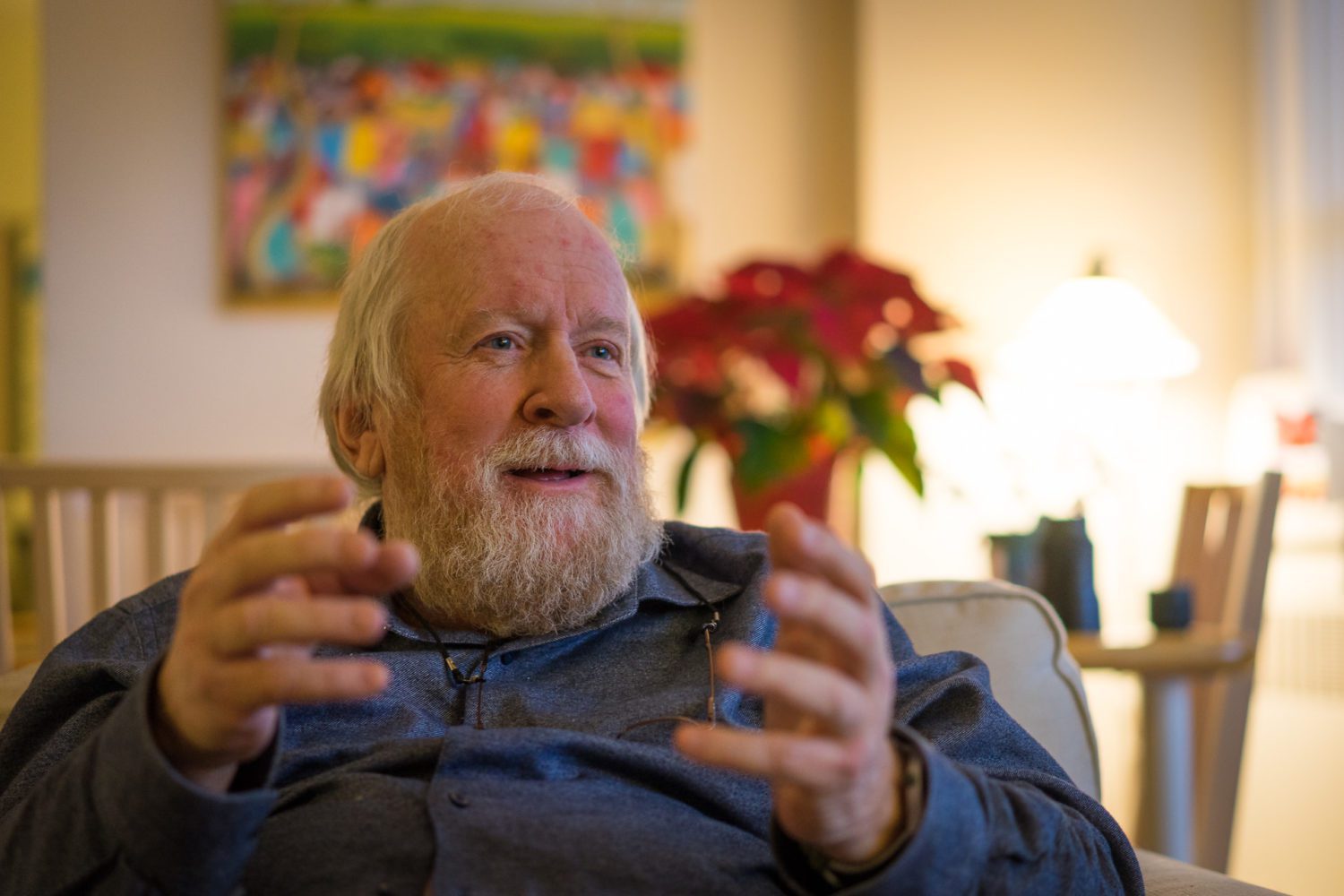
“There was a little lady I will never forget, from Barbados. She was a feisty, feisty lady. Once I was in the kitchen area on the palliative care unit and I heard this commotion. One of the nurses had made her a cheese sandwich and she said, ‘That’s no cheese sandwich for me, man! I don’t want that! Take it away!’ So I went in and I said, ‘Mrs B, what’s the problem?’ ‘See, that’s no cheese sandwich!’ I said, ‘I will make you a proper cheese sandwich.’ And I made a cheese sandwich out of real cheese and brown bread, toasted. The whole thing, with a pickle. I brought it to her, and she thought that was terrific. I was her best friend after that.”
I was deeply moved by the people I met there. It was extraordinary – I learnt about their histories, about their lives. Pretty much everybody dies as they live.
“There was one man there – he was very angry. I actually went back to his condo with him and helped him sort out a few things. He was ambulatory enough for that. But he was mad, and I found out that he was mad all of his life. His wife said, ‘He’s been like that, that’s him. He’s been angry all of his life.’ And the lady from Barbados was tenacious and feisty, and you could tell that even when she was completely comatose she wasn’t going to go easily. You could tell that St. Peter had the gates open for her and she was saying, ‘No man, I am not going there!’”
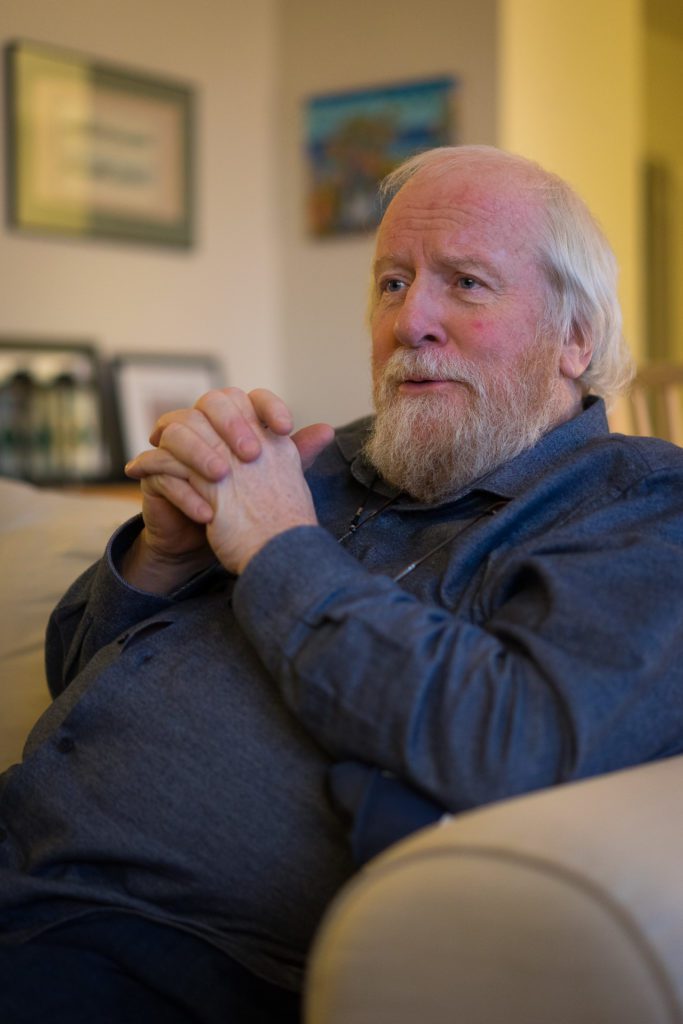
“Sometimes you’re confronted with people who die with such dignity and grace. Many years ago, there was one young woman, maybe 18 or 19. She was dying of AIDS. She had been on the street for years and she was almost dead when she came to us. But with the incredible nursing care that she got – well, she bucked right up. She eventually died, but she lived, I think, for three or four weeks on the unit.”
“One day when I was in her room she said, ‘You know, this is the best time I have ever had in my life.’”
That was extraordinary! A 19-year-old-girl dying of AIDS and saying, sincerely, that it was the best time she had in her life!
“I realized something then – the difference between curing and healing. A lot of healing went on in that place. No curing, but a lot of healing. Certainly that young woman was healed by the good nursing and the love that she got.”
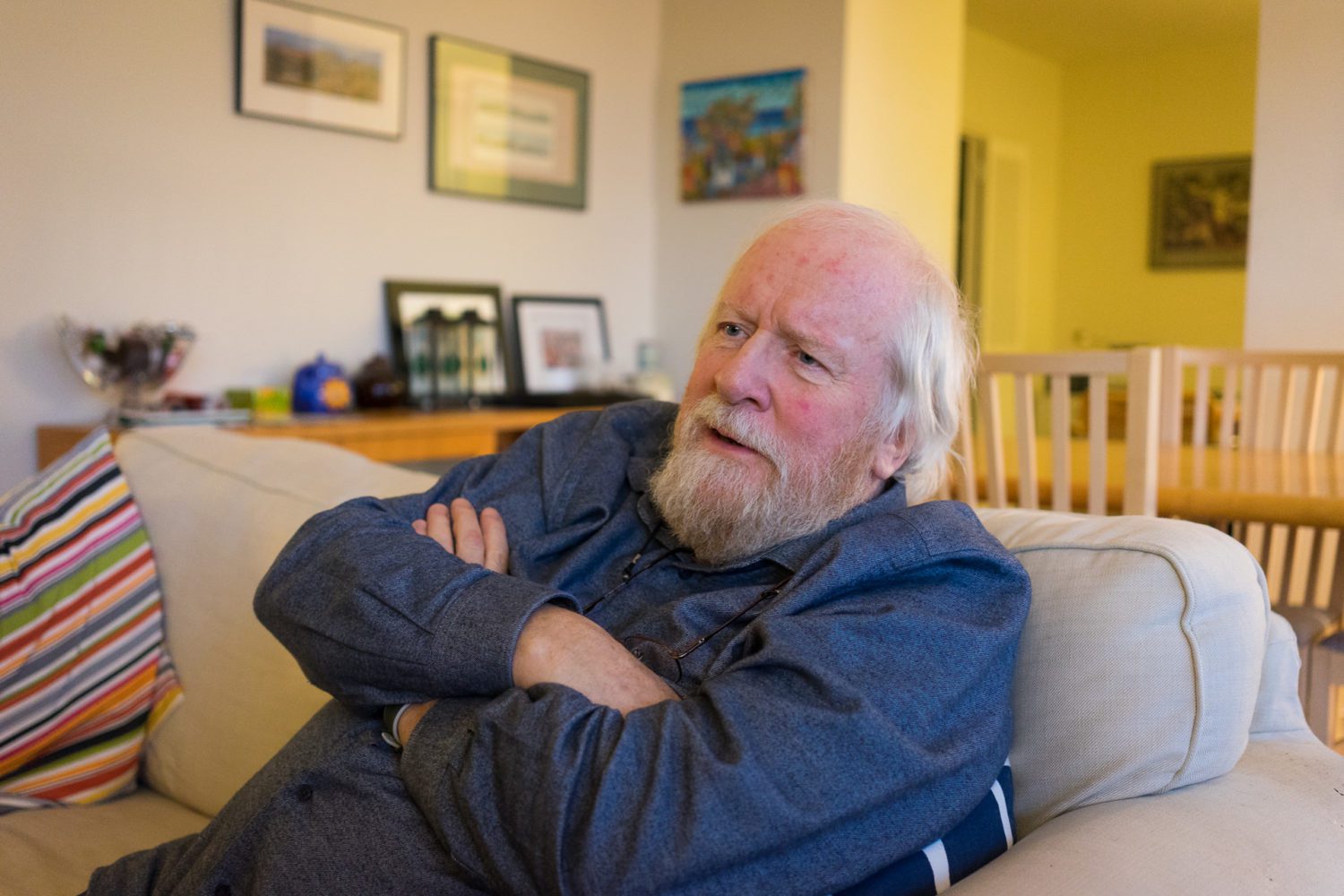
“One of the first patients I ever encountered was a guy called P, and he wanted a hot dog. Now, I love to cook, so I went out and I found him what I thought was the best gourmet hot dog in town, on the best bun. I brought it back to him, and served it up with all of the trimmings. I came back an hour later and said, “How did you like that P?” He said it was all right, but what he had in mind was one of those hot dogs you get from the stand. The rubbery ones. One of the cheap ones.”
“I guess that was my first failure in the art of communication. I hadn’t listened to him. I hadn’t asked him what he wanted. I put me ahead of him by trying to showing off my culinary skills, and that was a mistake.”
“Here is another story of me doing the wrong thing. There was a lady who looked comatose to me. She had her mouth open, her eyes were not closed but she was staring up to the ceiling. I was told to go in and hold her hand. I asked, ‘Why?’
I was told, ‘She’s very near the end, and we have a policy that nobody in this unit ever dies alone without a person there.
“I have called her family and it is going to be another hour before they can get here. So go in and hold her hand.’”
“I went in and I held her hand and stroked it. I felt like a complete ass because I was convinced she was unconscious. After about 15 minutes of this, I thought, ‘This is ridiculous!’ So I got up, and as I was leaving the room I heard, ‘Thank you!’”
“That was another lesson I learned. Don’t be so complacent. I was once again thinking of me. I always found it hard, during my entire time there, not to put me into the picture.”
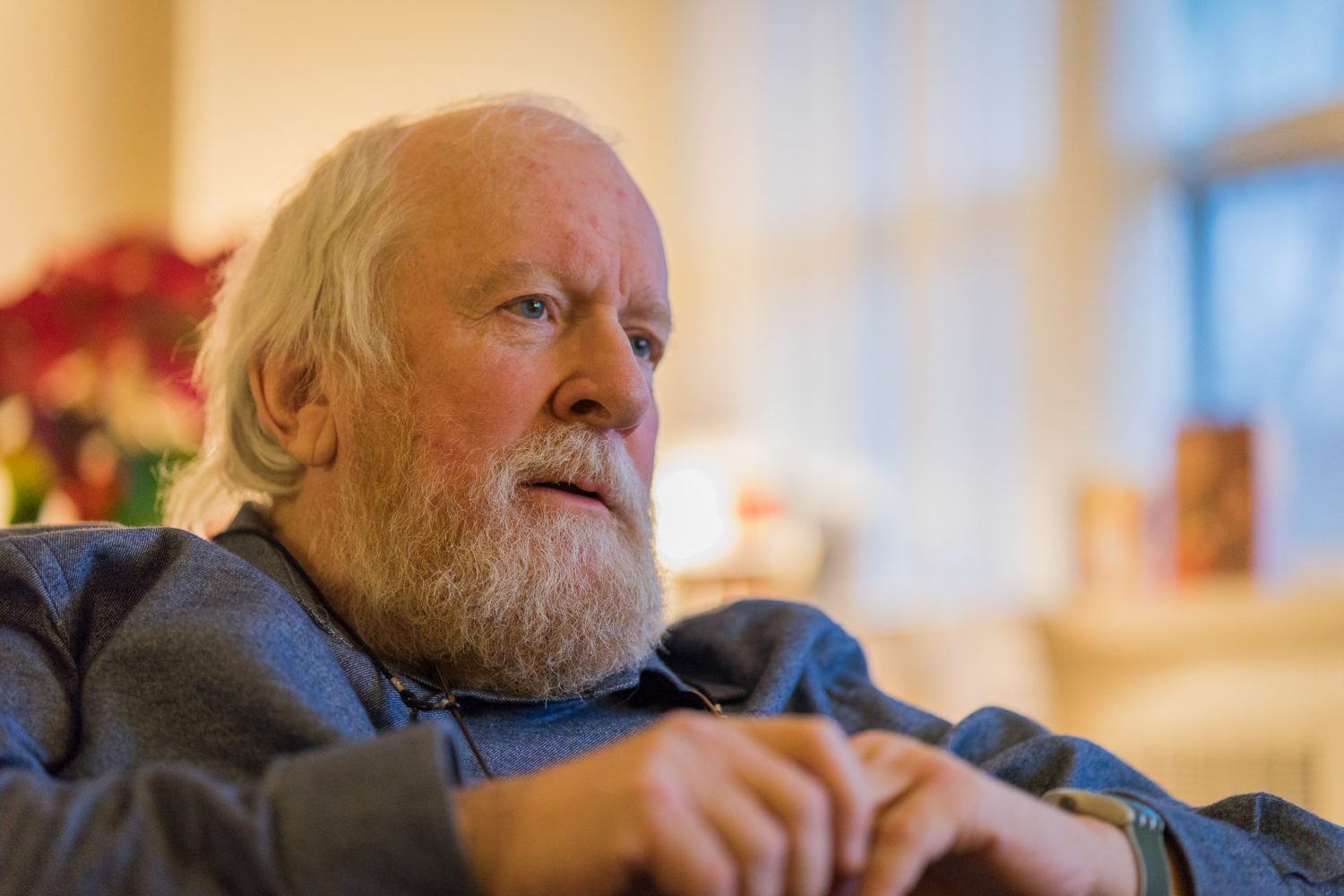
“I was in one Saturday and the staff were kind of down. So I went out and bought some food, and cooked them a meal in the kitchen on the palliative care unit. After that, every Saturday I cooked the staff lunch. And they really looked forward to it. I thought that was as important as my time with the patients. Because the staff, they were wonderful people. They enjoyed it, and I enjoyed doing it.”
“They liked having the relief from the routine. They liked being able to sit down and talk with one another for about half an hour. It was a social occasion. We got to talk about the patients as well, but that wasn’t the focus of our conversation.”
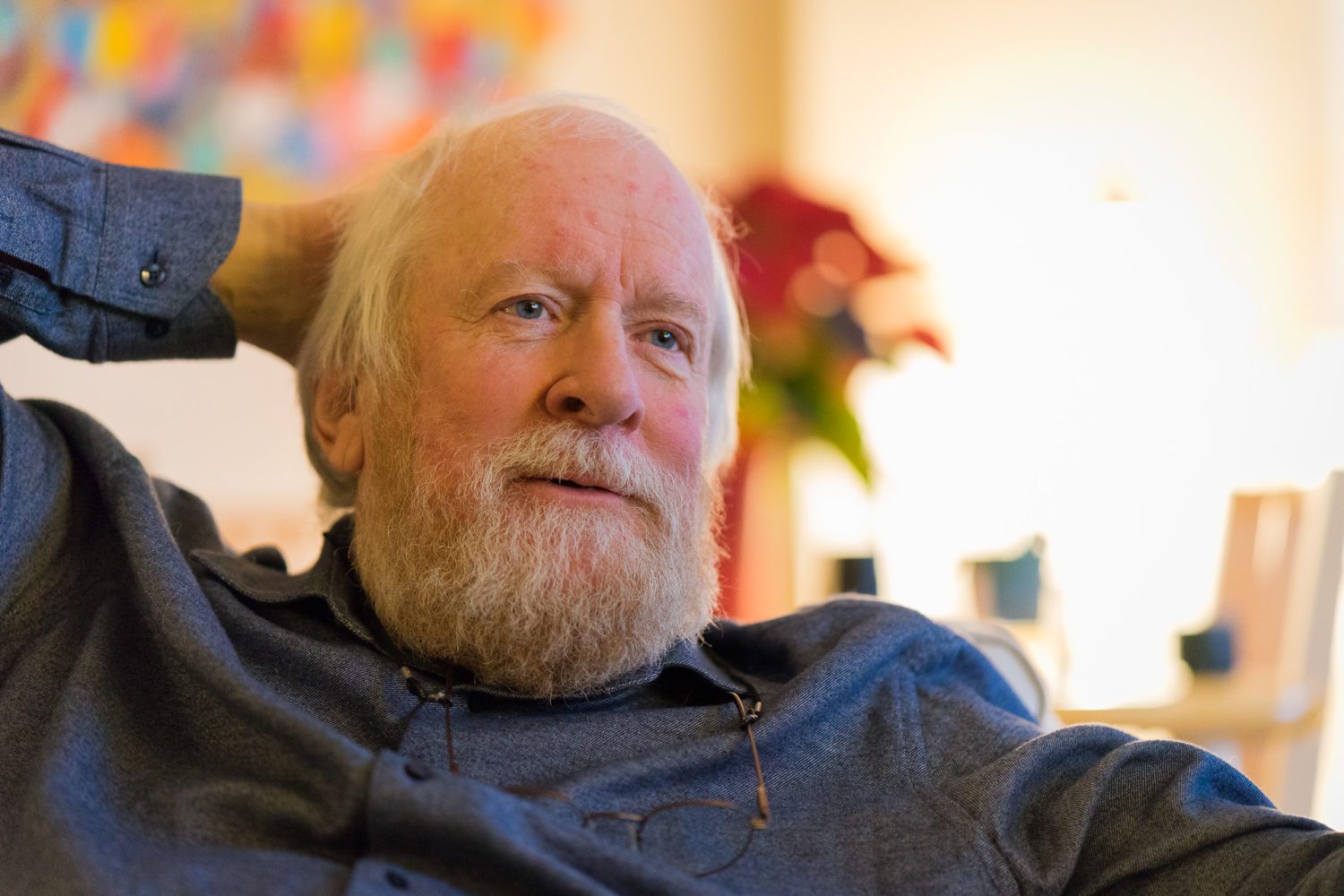
There’s no question that my 15 years on the palliative care unit made me reflect on my own mortality.
“You can’t not do so. I mean, you’d have to be a dolt not to!”
“I was visiting a friend of mine. His wife had died and I went to the Shiva. His granddaughter came up to me and we got talking, and she asked, ‘Are you afraid of death?’ I said ’No.’ I said something to her that a patient in palliative care said to me. I got into a conversation with a man there about fear of dying, and he volunteered to me, ’You know, Alan, I am not afraid of dying. I have a good life and I am content with my situation. But the one thing I am afraid of is that my grandchildren and my friends will be sad. And that I regret.’ And that’s what I told this young woman, and that’s how I feel.”


The comments section is closed.